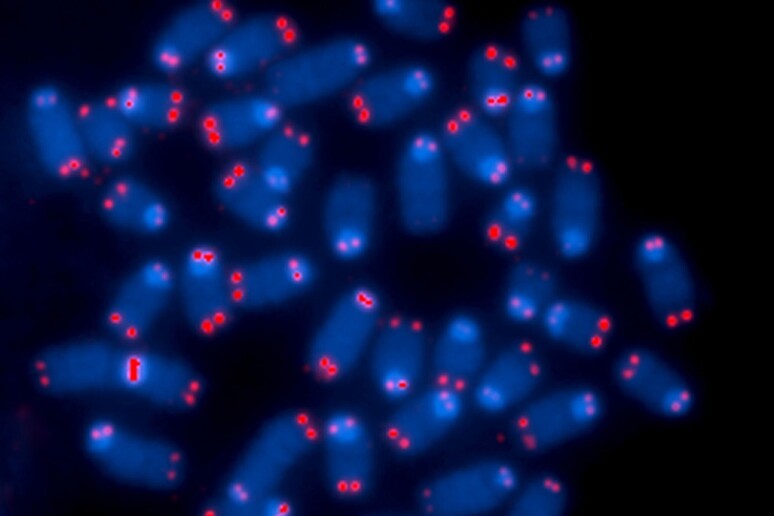Telomeres, namely the structures that protect the endings of chromosomes and act as timers that regulate cell ageing, are the target of a potential treatment for approximately 15% of currently incurable tumours such as glioblastoma and osteosarcoma.
These are the findings of a study led by Fabrizio d’Adda di Fagagna of the Molecular Oncology Foundation Institute and the National Research Council (CNR) with the support of the Italian Association for Cancer Research (Airc) and the European Research Council, and published in the journal Nature Communication.
"Cancer cells are in fact immortal and, in order not to age, most of them are able to express a protein called telomerase that regenerates telomeres, the chromosome endings that allow them to replicate indefinitely," d'Adda di Fagagna told ANSA.
However, a smaller percentage of treatment-resistant tumours, such as osteosarcomas and glioblastomas, use a different solution: they reshuffle lengths of telomeres as needed, in a process called Alternative Telomere Lengthening (ALT).
"They do this in a way that is dependent on a specific Rna sequence, so our idea was to inhibit this Rna by making it bind to a complementary molecule," added d'Adda di Fagagna.
In initial tests on human and fish cells, the new molecules called antisense oligonucletides block the telomere repair mechanism and induce the tumour cells to commit suicide.
Riproduzione riservata © Copyright ANSA













